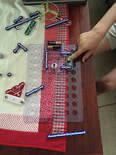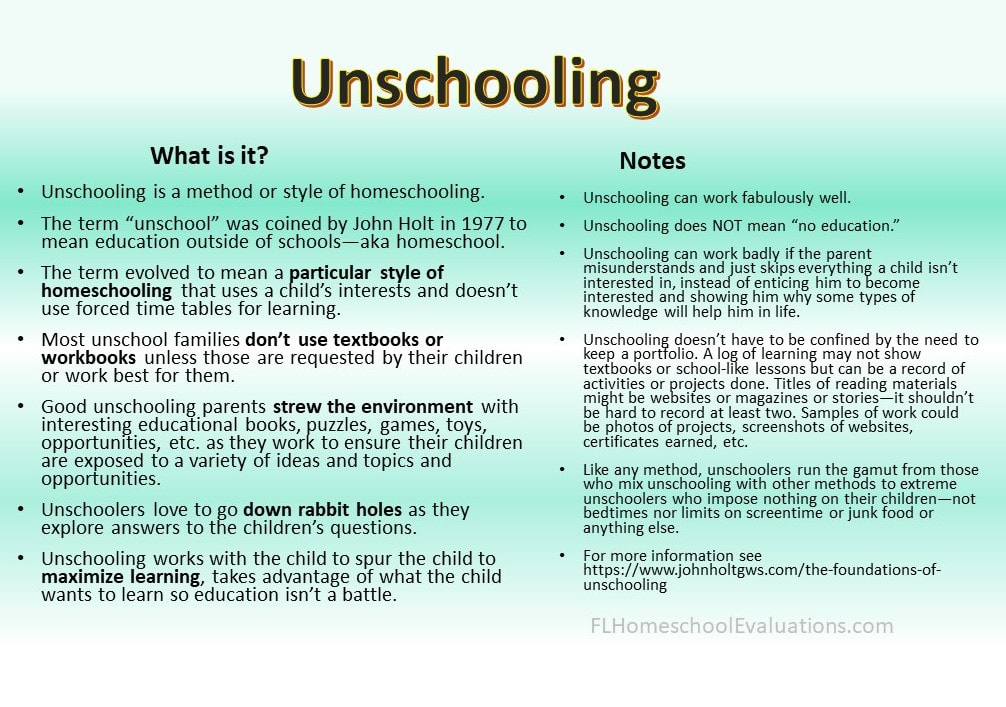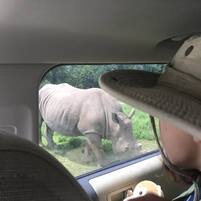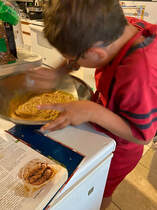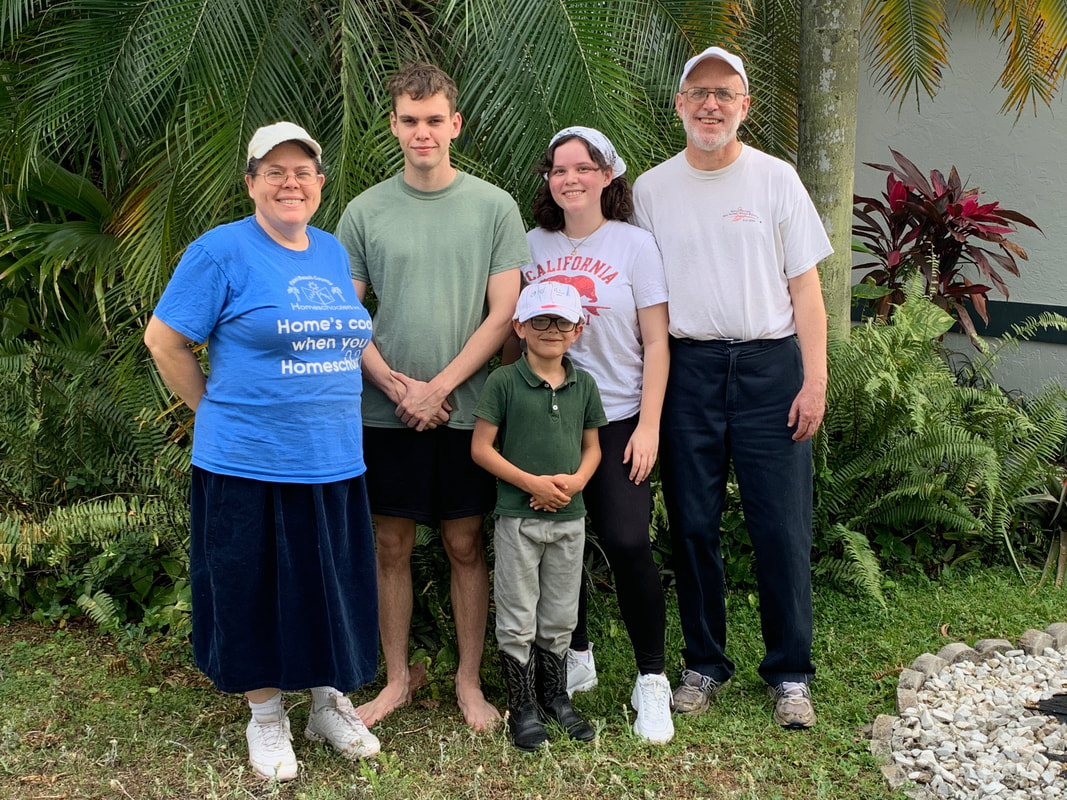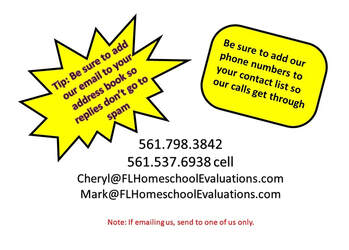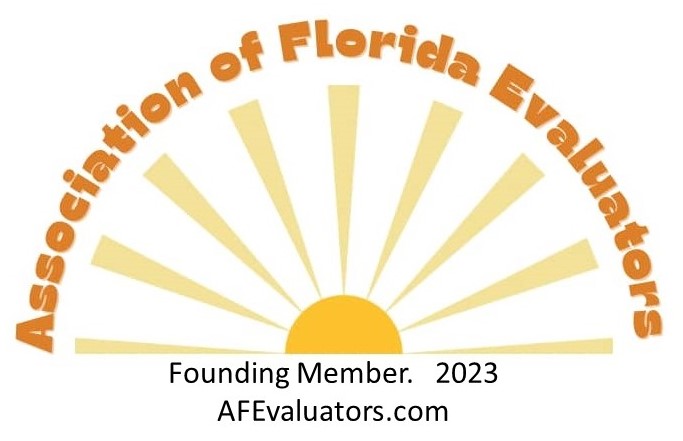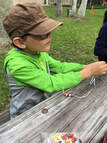Unschooling
A method or style of homeschooling in which the education is child-led and tends to shun textbooks, workbooks, grade level standards, quizzes and tests and other structures common in modern schools in favor of learning that uses the child's interests to enhance the learning.
|
|
Unschooling
Unschooling for one family will look very different than it does for another. This can make it hard for families to figure out how to start unschooling. There's no one path to begin unschooling. NOTE: Unschooling is not the temporary homeschooling method used to transition from schooling to homeschooling known as deschooling.
Many start unschooling after a period of deschooling. They may start with allowing the child to spend time getting bored and strewing the child's environment with interesting learning materials so that when the child gets too bored, the child will find some things to read or play with or explore. "Mom can I study Legos this year?" Every year I ask my kids what they'd like to learn that year. They usually respond with, "I don't know," but I'll tell them to think about it and will ask it a few more times and usually about two weeks later, they'll have an idea. The question above may not sound academic, but that year, we read several books on the history of Lego bricks. We learned the proper names of the various pieces. We hosted a monthly Lego Club at the library for other homeschoolers in which we hosted a variety of challenges. We learned about science and history and illustrated the learning with Lego creations. He wrote stories about Lego bricks, and more. If doing this today, I'd consider a few trips to Florida's Legoland in the center of the state and we'd discuss the geographic displays, and explore the STEM learning options. Q:Is unschooling just for young children who might learn a lot through playing?
--- A: Unschooling can be great for children of all ages. It can be especially good for teens who want independence. Many teens have designed their own learning. As long as the parent okays their design, they can play a big role in their own learning and build confidence. They can learn real-world skills in management and time management. They can research the career they'd like to have and then work on learning skills and information to help them prepare for that career path. Many unschoolers create a business or pursue a passion or work on a hobby while in high school and turn that interest into a business of their own. I've known teens to build businesses, prepare for careers, design classes for themselves, etc. While others might just want to be involved in deciding the methods and materials to be used to study more typical subjects. |
"Hey, mom, can I learn about Star Wars?" My first thought was: Of course not. You need to study serious academic things. That's not how your education should look. But as I considered it further, I realized that there were a lot of ways we could work on this. The library had lots of kids' books on Star Wars. He read beginning reader books but really wanted to get to the information in the various encyclopedias meant for more advanced readers; he wanted to read those so much that he pushed himself to read them and his reading level rose dramatically. Reading covered. Is Star Wars fantasy or science fiction? We could discuss genres, characters, settings, and other aspects of literature. Some of the scenes seemed to be set in the Roman Empire moved into outer space. So we brought in history. I found a book of Star Wars arts and crafts. We invited homeschooled friends to join us in a Star Wars club to work on the arts and crafts as well as trivia contests and related lessons. Art and social skills covered. Star Wars included a lot of wild science in it; some was accurate but some was totally made up, and some might be true in the future if technology advanced enough. Internet searches helped me find information for us to read and talk about to decide which ideas were which. Science covered. My son learned to play one of the Star Wars theme song on our keyboard and performed it at our local in-person homeschool group's talent show. Music covered. Could math have been included? Sure, if we'd wanted we could have made up word problems involving Star Wars characters to work on math concepts. Today, there are workbooks for math and reading with Star Wars characters. We worked on Star Wars lessons most of the year. My son loved it. This was the learning he had asked for and he looked forward to and was happy to work on his lessons. He paid attention and advanced more quickly because of it. What records should unschoolers keep?
A portfolio with a Log of Educational Activities kept around the time of the learning, titles of reading materials, and samples of materials used or created by the student. (I.e., the same as any other homeschooler)
How do unschoolers keep a Log of Educational Activities?
Most keep it diary-style or as a blog. Some use a lesson plan book--but it can be filled while the child is doing the learning. See our page on portfolios for other examples.Portfolio Examples
What if we don't use curriculum? What titles should we record?
Reading materials don't have to be textbooks or workbooks. Titles can be of books, magazines, websites, apps, or anything else read to or by or with the child. Record at least two.
How do we keep samples of materials used if not using workbooks?
Samples of materials used can be photos of projects made, copies of pages read, screenshots of websites used, notes the child took, synopses of a few discussions had, etc. See our page on portfolios for more options.
How do I show educational progress if we aren't using textbooks?
Progress can be shown with records that show improvement in skills, moving to a new level, regular entries in the Log, that the child is regularly exploring new ideas, etc. You are showing that the child is being educated. See our page on portfolios for more information.
: What if my child isn't interested in learning something important?
--- A: You could decide that your child will learn it later when your child is ready. Or you could work on developing your child's interest. I've known a mom who stopped math lessons at an early third grade level because her son wasn't interested in math. To me, this is a sad misunderstanding of how we should work with a child's interests. Instead of throwing in the towel because he's not interested, I recommend taking it as a challenge to get your child interested. Show him how the math is useful. Bring out fun games or videos, etc. |
Unschooling Unschooling is a method of homeschooling that focuses on using a child's interests to direct the learning. Unschoolers typically avoid textbooks, workbooks, and structured learning apps or programs unless the child asks for them. Unschoolers will strew the environment with educational games, kits, books, videos, programs, brochures and flyers for programs, etc. to attract the child's attention and get the child interested in a topic. The parent may do things like bake cookies and double the recipe to get the child curious about fractions and how they work, or set out a video on space exploration to make the child wonder about that topic. ---------- Note that unschooling isn't the only homeschool method that uses the child's interests to help the child learn more. Eclectic homeschoolers will use the child's interests in some areas, but may use traditional curriculum as well. Eclectic homeschoolers mix and match different methods of education to best meet their family's needs. Relaxed homeschoolers may use a child's interests in a lot of the learning but may not allow the child to direct the learning--or not all of it. Relaxed homeschoolers may use the child's interests but the parent may direct the way that works in one or more areas. The parent may attempt to get a child interested in a topic but push the child to learn it even if the child hasn't necessarily become interested. Working with a Child's Interests Q: I've heard a lot about working with a child's interests, but I'm not sure that I agree. It sounds good, but my 10-year-old isn't interested in learning multiplication or division or higher level math. This sounds like I should quit pushing him to learn it. Or am I missing something? --- A: Working with a child's interests can mean spending time learning whatever the child is interested in. So, if he wants to know about sharks, spend time learning about sharks. A parents' job, in my opinion, is to stretch the child's horizons and provide an education that will serve him well as an adult and help him function well in society, earn a living, make him less vulnerable to scams, etc. So if he wants to know about sharks, get books on sharks and work on both reading and science skills. Include some history and social studies with information about where sharks are found and how people have treated sharks. Include math as charts and graphs are studied or proportions are used to compare sharks in photos to real-life objects or people in the room. Don't just settle for learning exactly what the child is interested in; sneak in other learning, too. If it involves the child's interest, it will likely go over well. Discuss and analyze what's being read. Teach the child to think, along with the basics of reading, math, and writing, and you have the beginnings of a great education. |
|
Examples of unschooling:
|
General information on unschooling:
|
How do unschoolers do as teens and/or adults?
|
|
Unschooling Spectrum:
Like most philosophies, unschooling runs the gamut from radical unschoolers who pose no limits on their children--no limits on screen time, junk food, bedtimes, etc.--to lite-unschoolers or electic homeschoolers who dabble in unschooling methods but mix in some textbooks or school methods or parent-directed learning at times. |
Related terms or phrases: Child-led learning, natural learning, learning through daily life, autodidactic, delight-directed learning, relaxed homeschooling
|

